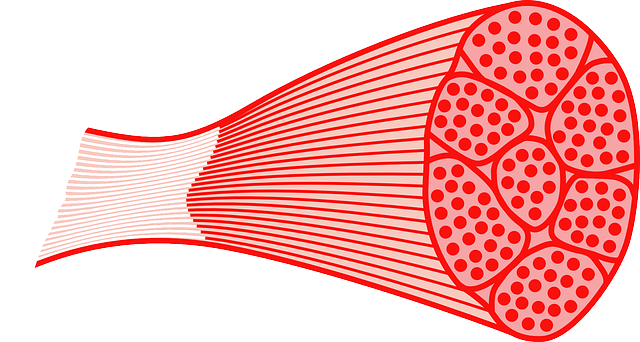7 Basics About Muscle
An excerpt from Chapter 1, "Muscle." by Ken Hutchins in his book, "Music and Dance, Critical Factors of Practice and Conditioning"
It is crucial that you know and completely embrace these basics about muscle:
Obviously, you can’t play a musical instrument or sing without muscle. And increasing your muscle, and thus, your strength, can only help – never harm – your ability to perform.
Yes, there are other essential factors of performance. You have a nervous system that is largely a genetic gift and is not trainable in terms of its transmission efficiency.
You have skill – a highly trainable factor that works within your nervous system to tell your muscles how and when to act. Skill is trainable, but not through exercise.
You have a boney skeleton that supports the muscles and transmits their force to produce movement through its levers. But for the most part you can’t positively improve your skeleton through training.
There’s also flexibility, but this doesn’t do anything at all. It merely permits movement through a range of motion.
And, of course, there’s your vascular system. It is improvable through exercise. It supports the muscle by bringing it nutrients and by removing waste to be expelled by the lungs.
Note that of the six functional ability factors that enable you to make music – muscular strength, nervous efficiency, skill, boney levers, flexibility, and vascular efficiency – there is only one truly productive factor: Muscular strength.
The other factors – though crucially essential – are merely supportive of that only productive factor: Strength of the skeletal muscles.
Also note that two of the factors are not improvable through training.
And note again that three of the four trainable factors – muscular strength, vascular efficiency, and flexibility – are completely addressed by one program – a regimen to strengthen and maintain the strength of your muscles.
There is one lone and only trainable factor that must be addressed by a special program not associated with exercise per se: Skill.”
- Muscle is the only thing that moves you.
- As defined by Leonardo da Vinci, a muscle is a “force-producing engine.”
- Muscle is the only thing that you can directly exercise.
- Muscle is the only window into the body through which exercise can directly and indirectly effect changes in the other parts you might reasonably expect some improvement via exercise.
- Muscle is mostly water. It is the largest reservoir of water in the body.
- Muscle contains the most mitochondria – the energy powerhouses of the cell – of all places in the body.
- Muscle is the site of the greatest metabolism in the body and because of this, it is the greatest heat producing tissue in the body. Other tissues in the body, such as the adrenals, have more complex metabolism ongoing, but skeletal muscle is the site of the greatest volume of metabolism.
Obviously, you can’t play a musical instrument or sing without muscle. And increasing your muscle, and thus, your strength, can only help – never harm – your ability to perform.
Yes, there are other essential factors of performance. You have a nervous system that is largely a genetic gift and is not trainable in terms of its transmission efficiency.
You have skill – a highly trainable factor that works within your nervous system to tell your muscles how and when to act. Skill is trainable, but not through exercise.
You have a boney skeleton that supports the muscles and transmits their force to produce movement through its levers. But for the most part you can’t positively improve your skeleton through training.
There’s also flexibility, but this doesn’t do anything at all. It merely permits movement through a range of motion.
And, of course, there’s your vascular system. It is improvable through exercise. It supports the muscle by bringing it nutrients and by removing waste to be expelled by the lungs.
Note that of the six functional ability factors that enable you to make music – muscular strength, nervous efficiency, skill, boney levers, flexibility, and vascular efficiency – there is only one truly productive factor: Muscular strength.
The other factors – though crucially essential – are merely supportive of that only productive factor: Strength of the skeletal muscles.
Also note that two of the factors are not improvable through training.
And note again that three of the four trainable factors – muscular strength, vascular efficiency, and flexibility – are completely addressed by one program – a regimen to strengthen and maintain the strength of your muscles.
There is one lone and only trainable factor that must be addressed by a special program not associated with exercise per se: Skill.”

